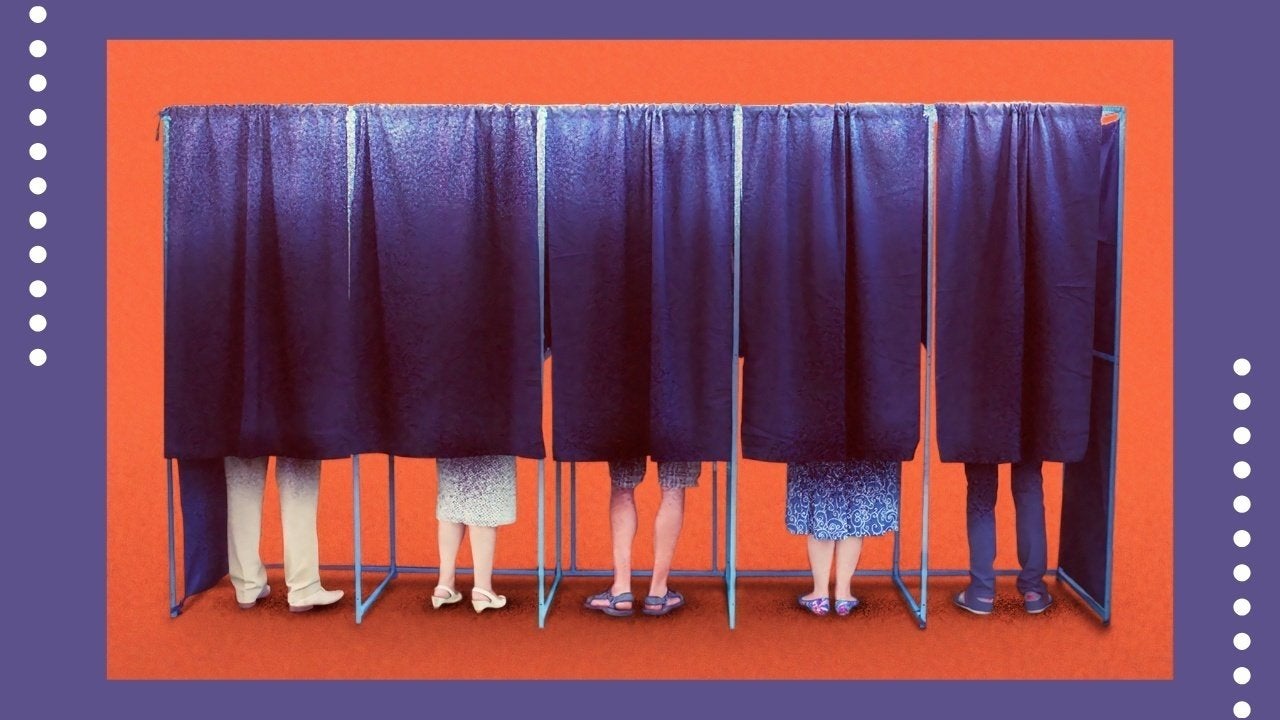If you are completely and utterly confused about the “Yes on 4” or “Yes on 3” signs you’ve seen while driving around town, don’t stress because I am about to give you the rundown on all the amendments you’ll see on the Florida ballot this November. There will be six amendments on this upcoming ballot that cover a wide variety of topics. Let’s start at the beginning with Amendment 1.
Amendment 1: Partisan election of members of district school boards
According to the Merriam-Webster dictionary, being partisan means “a firm adherent to a party, faction, cause, or person.” In American politics, this generally means you’re a staunch Republican or Democrat. This amendment will entail that school board members will be able to run as members of a particular political party, rather than nonpartisan.
Right now in Florida, school board elections are nonpartisan; therefore, all voters elect school board members in primary and general elections, regardless of their political affiliation. This ballot has many concerns, as opponents believe that politics should stay out of the classroom. However, supporters of this amendment believe that by making school board members partisan, the community can predict how they will vote on divided issues.
Amendment 2: the Right to Fish and Hunt
Any Florida native can say that fishing is a huge enterprise in the Sunshine State, and this amendment strives to provide the constitutional right to fish and hunt in Florida.
Already, the right to fish and hunt is under the Florida Statute Title XXVIII, Chapter 372, passed in 2002, “The Legislature further recognizes that these activities [fishing and hunting] play an important part in the state’s economy and in the conservation, preservation, and management of the state’s natural areas and resources.”
This statement, written in 372.002 of the Florida statute, is why many people support this amendment. While legislation already surrounds the right to fish and hunt, the amendment offers two provisions. First, it will ensure that the right to fish and hunt is forever secured and protected in the Florida Constitution. Second, it will act as a public right and preferred means of controlling and managing fish and wildlife, according to Article 1, Section 28 of the proposed amendment.
Supporters of this amendment believe that passing this bill will help protect Florida’s economy and allow it to prosper. They support the idea of no further bans on hunting and fishing. Opponents of this amendment believe that select wording such as “preserving traditional methods of hunting and fishing” can be interpreted as setting various traps, ultimately endangering all wildlife. They also believe this can lead to trespassing and interfere with private property rights.
Amendment 3: Adult personal use of marijuana
This is a very popular amendment for a variety of reasons. This title chiefly explains the goal of this amendment: any person over the age of 21 will be able to purchase and possess marijuana products and accessories for non-medical consumption.
In 2016, Florida voters approved a constitutional amendment allowing the use of medical marijuana. This new amendment would expand marijuana use for any adult.
According to BallotPedia, “Individuals would be allowed to possess up to three ounces of marijuana (about 85 grams), with up to five grams in the form of concentrate.”
Florida is currently one of the strictest states on marijuana possession, where perpetrators could face one year in prison and $1,000 in fines for possessing 20 grams of marijuana. Unfortunately, with the passing of this amendment, those already imprisoned for marijuana charges will not have those charges dropped.
The medical marijuana centers already in existence will be able to sell to individuals 21 or older, but there will be an additional sales tax on marijuana products. Supporters of this amendment believe it will open up more jobs and more revenue for Florida. It will also decrease the incarceration rate, and it will allow safer marijuana usage as it will eliminate third-party buying and selling, which has a history of being laced with drugs such as fentanyl.
Opponents of this amendment claim that it will lead to more drug usage for more dangerous drugs. It is important to note that even if this amendment passes, marijuana is still illegal at the federal level and cannot be used on federal lands or college campuses that receive federal funding.
Amendment 4: Right to Abortion Initiative
This is the most controversial amendment on the ballot this November. Since the overturning of Roe v. Wade in 2022, it has been up to states to legislate abortion.
In 2023, Florida legislators passed a bill in which abortions would be banned after six weeks, with exceptions for cases of rape, incest, and the life of the woman. This initiative states that “no law shall prohibit, penalize, delay, or restrict abortion before viability or when necessary to protect the patient’s health, as determined by the patient’s healthcare provider.”
According to Florida law, viability means “the stage of fetal development when the life of a fetus is sustainable outside the womb through standard medical measures.” If this amendment passes, the government will not be able to interfere with women’s decision to have an abortion up to viability.
Supporters of this amendment argue that women should have the right to make their own choices over their bodily autonomy, separate from governmental policy. Opponents hold the view that life begins at conception and that the fetus should be protected in the developing stages. They also fear abortions will be allowed up until the time of birth and believe there are alternatives to terminating a pregnancy in most situations.
Amendment 5: Annual Inflation Adjustment for Homestead Property Tax Exemption Value Amendment
This amendment strives to apply an annual inflation adjustment for the homestead property tax exemption value that applies to non-school taxes. This adjustment would occur every year on Jan 1. Amendment 5 would decrease the tax dollars available for programs and services. Supporters of this amendment say that this could lead to more savings for property owners who apply for homestead property tax exemptions. Opponents of this amendment believe it would decrease the amount of tax dollars available for cities and counties by thousands to millions.
Amendment 6: Repeal of Public Financing for Statewide Campaign Amendment
Currently, in the Florida Constitution, Article 4 states, “a method of public financing for campaigns for state-wide office shall be established by law.”
The Florida Constitution states, “Public campaign financing is available for candidates for the offices of governor, attorney general, chief financial officer, and commissioner of agriculture.” By voting yes on this amendment, the Florida Election Campaign Financing Act would be repealed, eliminating Florida’s public campaign financing program.
Supporters of this amendment believe that citizens’ tax dollars should not be used to fund political campaigns. Opponents of this amendment believe this would make elections more fair in the long run.
There is a lot of buzz surrounding the presidential election, but Kamala Harris and Donald Trump are not the only people and legislature on the ballot. It’s important to understand what you’re voting for this November. Only you have the ability to act on your civic duty to vote. Voting can be scary, but plenty of resources are available to help educate yourself before the next election.



